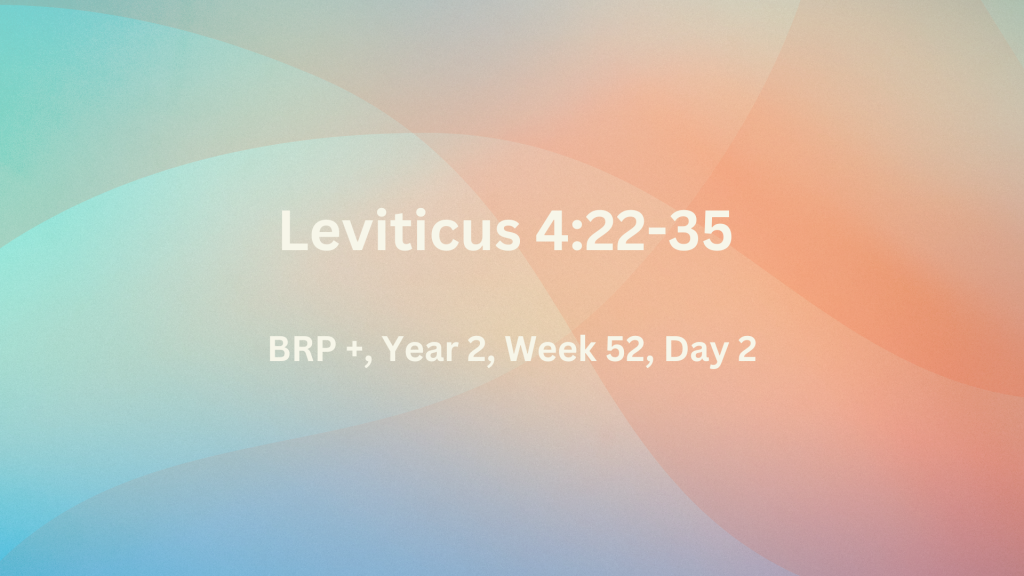Leviticus 4:22-35
Q.1. Whose sin was addressed? What was meant by an unintentional sin? How could such sin be atoned for? What was the role of the priest? How was forgiveness possible? – (Lev.4:22-26)
This part of the chapter gave instructions for a leader who sinned unintentionally when breaking any of the Lord’s commandments (Lev.4:22). It was described as unintentional because his sin was identified after the event, so was not premeditated (Lev.4:23). This offence of a leader required the sacrifice of a goat – He shall lay his hand on the head of the male goat and slay it in the place where they slay the burnt offering before the Lord; it is a sin offering (Lev.4:24). The priest then applied the blood as prescribed and offered all its fat in the smoke of the altar as a peace offering – Thus the priest shall make atonement for him in regard to his sin, and he will be forgiven (Lev.4:26).
Q.2. What sacrifice made atonement for the ordinary person? Why could different animals be offered? What portion was given to God? What lesson was learnt by the sacrifice of the sinning person? – (Lev.4:27-35)
The ordinary person who sinned unintentionally could offer either a female goat or lamb without blemish (Lev.4:2-28 & 32). Bulls were much more expensive to buy than a goat, lamb, or pigeon. Though it was not explained here, the different offerings took into account the person’s ability to pay (c.f. Lev.5:7, 11; 12:7-8). The sinning person had to bring the sacrifice, identify with the dying animal, and then slaughter it, to impress on him the cost of sin (Lev.4:29 & 33). The priest then ceremonially applied the blood and offered up the fat as a smoke offering to God (Lev.4:30-31, 34-35). God promised – Thus the priest shall make atonement for him in regard to his sin which he has committed, and he will be forgiven (Lev.4:35 c.f. Lev.4:20, 26, 31).

